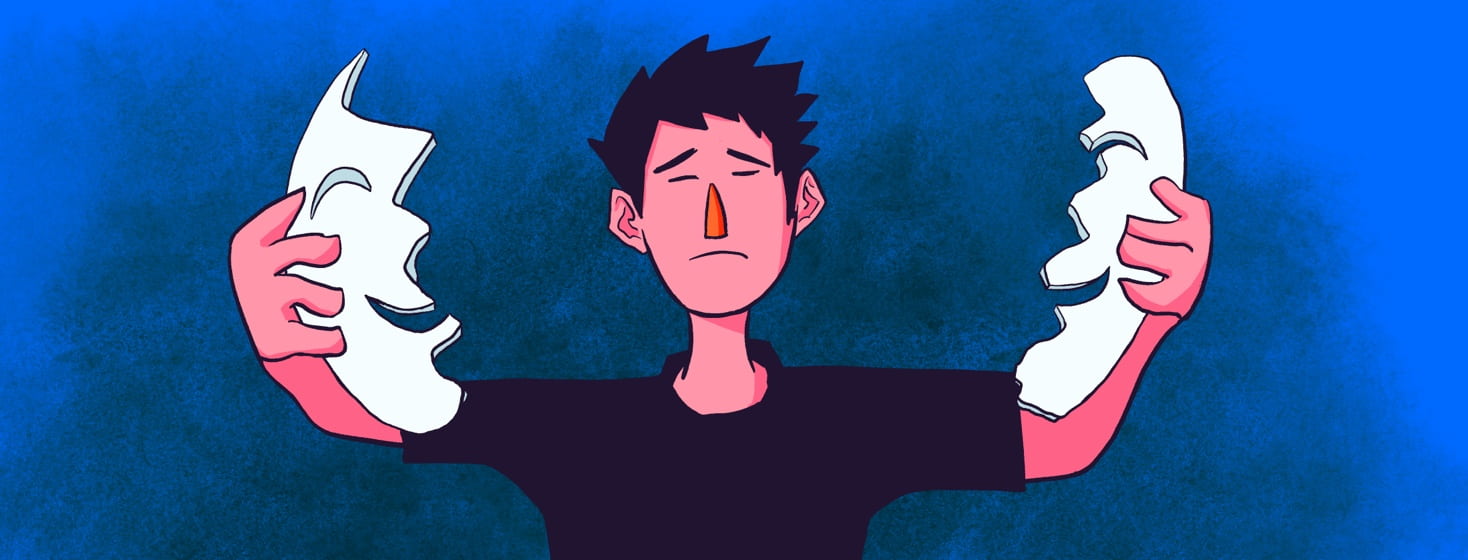Why I No Longer Put On a Brave Face With My Doctors
A lifelong people-pleaser, I've always tended to be polite and agreeable in an effort to make others comfortable. When a problem arises, my instinct is to figure things out for myself and not burden anyone. While these aren't necessarily bad traits, they totally sabotaged me as a chronically ill patient. In order to get adequate treatment, I had to learn to complain often and without shame.
My medical records woke me up
About five years after my diagnosis, I realized I was getting in my own way. While gathering my medical records in the thick of a flare, I was reading through my doctors’ notes. These are much more complete than visit summaries and often require signing a release form to get. If you haven’t signed a release form, you likely haven’t seen your full medical records with doctors’ notes—and until you do, you won’t know exactly what your doctor is thinking about you or your case.
Sidenote: Many medical records contain errors that can be harmful to a lawsuit or disability claim. It’s on you as the patient to read these records and have any inaccuracies corrected.
I was stunned to see that my doctors had written all kinds of things about me in their notes that did not reflect the reality of my condition. Rather than documenting what I thought I had reported—-oftentimes debilitating pain and fatigue-—my doctors noted how well-appearing I was, how well-spoken I was, and that I seemed to be doing somewhat better even though I still had some pain.
I shouldn't have put on a brave face
Not only did these notes paint a totally false picture of my situation, but they also were missing most of the details I'd shared about my symptoms and limitations. I saw terms such as “alert and oriented,” “pleasant,” “looks well,” and “talkative” peppered throughout the records. I was infuriated. How could they think I was doing better?
I had used every ounce of my energy to shower, groom, dress, and get to these appointments. Then I brought all of my focus to the discussions in the hopes of finding solutions. I also rested my body for days beforehand, and then came home and crashed from pain and fatigue afterward.
But my doctors saw none of this struggle. All they saw was me looking presentable and sounding articulate. I didn’t mention how much of an ordeal it was to leave the house because it didn’t seem pertinent. And frankly, it was embarrassing.
I wanted to seem positive and strong
That’s when I realized it. I had unintentionally downplayed the severity of my illness when I tried not to make waves and or make my doctors uncomfortable.
Instead of having hard conversations where I shared the blunt truth about my symptoms and pushed for more help, I tried not to complain too much. I wanted to show up to appointments with good news about feeling better—for their sake and mine—but it just wasn’t the case. So while I definitely shared that I was feeling poorly, I didn’t emphasize just how poorly or what kinds of tasks I struggled with. I said things like, "the pain is worse," rather than something more descriptive like: "the pain is 8/10 in the morning and I can't start my day for two to three hours."
I wanted to seem positive and strong, and I also probably wasn't ready to accept how unmanageable my illness had become. And because I didn’t describe the whole, awkward, difficult reality, they assumed it wasn’t that bad.
Now I am painfully honest—even when I'm nervous and it feels humiliating
No one wants to face that they can't physically do what they used to. It feels humiliating to admit that symptoms prevent you from doing the activities you need or want to do. It's stressful to share every detail of your struggles or tell your doctor that their treatment isn't helping. It's easier to pretend you're okay so that you don't feel like a burden. But this very impulse to hide your pain is what's going to prevent any real treatment progress. And it will ensure that your medical records tell the wrong story about you.
Now, before every appointment, I remind myself that it's not my job to make my doctor happy or comfortable. I don't have to share good news or be pleasant. When I have the floor, I have to show the full extent of my pain—messy, raw, unfiltered—no matter how strong my urge is to hide it.

Join the conversation